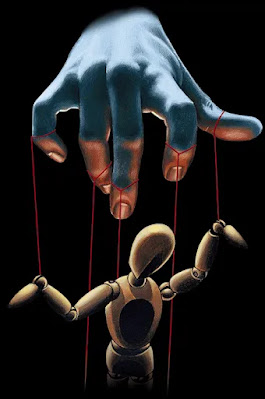Tzeitel, you're the oldest! Yente has to make a match for you before she can make one for me!
Oh, Yente, Yente!
Well, somebody has to arrange the matches. Young people can't decide these things for themselves!
She might bring someone wonderful...
Someone interesting...
And well off...
And important!
Matchmaker, Matchmaker,
Make me a match
Find me a find
Catch me a catch
Matchmaker, Matchmaker,
Look through your book
And make me a perfect match!
Matchmaker, Matchmaker,
I'll bring the veil
You bring the groom
Slender and pale
Bring me a ring, for I'm longing to be
The envy of all I see!
For Papa, make him a scholar
For Mama, make him rich as a king!
Me, well, I wouldn't holler
If he were as handsome as anything!
Matchmaker, Matchmaker,
Make me a match
Find me a find
Catch me a catch
Night after night
In the dark I'm alone
So, find me a match
Of my own!
Since when are you interested in a match, Chava? I thought you just had your eye on your books. And you have your eye on the rabbi's son.
Well, why not? We only have one rabbi and he only has one son. Why shouldn't I want the best?
Because you're a girl from a poor family! So, whatever Yente brings, you'll take, right? Of course, right!
Hodel, oh Hodel!
Have I made a match for you!
He's handsome, he's young
All right, he's 62
But he's a nice man, a good catch, true?
True!
I promise you'll be happy
And even if you're not,
There's more to life than that
Don't ask me what!
Chava, I found him!
Won't you be a lucky bride!
He's handsome, he's tall,
That is, from side to side
But he's a nice man, a good match, right?
Right!
You heard he has a temper
He'll beat you every night
But only when he's sober
So you're all right!
Did you think you'd get a prince?
Well, I'll find the best I can!
With no dowry, no money, no family background,
Be glad you got a man!
Matchmaker, Matchmaker,
You know that I'm still very young
Please, take your time
Up to this minute I misunderstood
That I could get stuck for good!
Yente, see that he's gentle
Remember you were also a bride
It's not that I'm sentimental
It's just that I'm terrified!
Matchmaker, Matchmaker,
Plan me no plans
I'm in no rush
Maybe I've learned
Playing with matches
A girl can get burned
So, bring me no ring
Groom me no groom
Find me no find
Catch me no catch
Unless he's a matchless match!
From Wikipedia: "Matchmaker, Matchmaker" is a song from the 1964 musical Fiddler on the Roof, with music by Jerry Bock and lyrics by Sheldon Harnick. It was later made into a film in 1971. The story revolves around a poor Jewish milkman, Tevye, and his five daughters, as he attempts to maintain his Jewish traditions. His three eldest daughters marry, but each daughter's choice of husband moves further and further away from their traditions.
Tevye and Golde's daughters sing about a matchmaker choosing a partner for them. Hodel and Chava sing excitedly about their future marriages, arranged by the matchmaker, Yente. However, Tzeitel, the eldest daughter, warns the others that, as they are from a poor family, they'll have to marry whoever Yente brings for them, regardless if it's an unhappy marriage. Towards the end of the song, the sisters quickly realize that they might rather remain on their own than marry just anybody.
The blog Sermons From Seattle explains, "The story [of Fiddler] is that the matchmaker is to meet with the mother and father and match their three daughters to prospective husbands. But the girls want to choose their own partners and not use the matchmaker. Traditions are changing. Those old traditions are beginning to crumble."
This song epitomizes the more traditional views regarding this issue that the daughters question at the very beginning. As time passes, they begin to think for themselves and change the tradition.
My own thoughts: This is probably my most favorite song from this musical. Not only is it fun to sing, not only do the lyrics roll off your tongue with relative ease, but it also poses a serious philosophical problem.
Today, we take it for granted that we may marry whomever we want. But back in the old days, most people didn't have that kind of freedom, especially the women. Some women had to take literally whatever they could get, so marriage was more of a public-approved form of slavery than anything else.
This song is also a wonderful fit for Kaylee Drummond and her four sisters. Their mother is sort of their matchmaker, and at first, Faith, Lavinia, Daisy, and (to an extent) Catherine trust wholeheartedly that Mother knows what she's doing. Kaylee's not so sure, and the other girls start to see their mother in a less glamorous light when Lottie dismisses the idea of marrying for love to their faces.
Lottie and Philip didn't get to marry for love (though they didn't totally hate each other at first), so why should it be any different for their daughters? That doesn't sit well with the girls at all, Faith especially.
Philip wouldn't have been so flippant if he realized just how worried and scared his daughters were. And, of course, Lottie only wanted her daughters (except Kaylee) to marry into royalty so that she could take her dictatorship to the next level, the highest level of all. Becoming the puppet master of a Queen was her ultimate dream.
Of course, that's not quite how it would have worked. But Lottie naturally assumes that being the Queen's mother makes her an exception to the rules; Ann's father was the exact same way, worse even.
And that was one of the many reasons why Lottie despised Kaylee and tried to keep her away from Prince Troy, because she knew Kaylee would have resisted her a lot more. Kaylee is already a very fine woman by herself, and the only credit Lottie can claim is giving birth to her. Kaylee can already think for herself and Lottie knows it, as much as she resents it.
Fortunately, Kaylee's sisters also break free from Lottie's control (except Catherine) and make up their own minds whom they want to marry as well as what kind of women they want to be. And Lottie gets a harsh reminder that her daughters are neither pawns nor tools, just as Philip gets a harsh reminder that his daughters deserve to be loved for who they are, not for what he or society expect them to be.
Goes to show that, as important as tradition is, some traditions are meant to be broken. Someone has to be bold enough to challenge the old ideas and issue new ones.
That's what I like about Fiddler on the Roof as a whole. It's not my most favorite musical but I can appreciate the overall message it conveys. So, you can probably tell that I borrowed bits and pieces of that story for my own story.










No comments:
Post a Comment